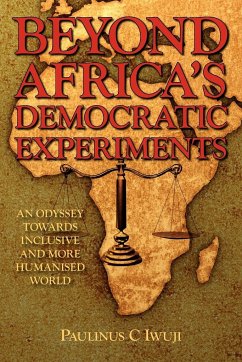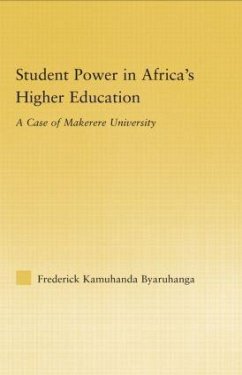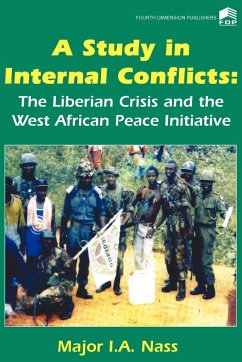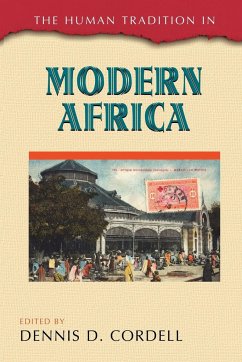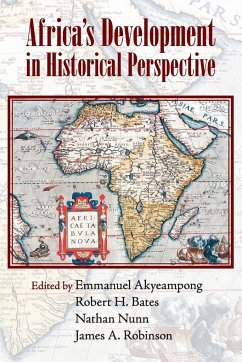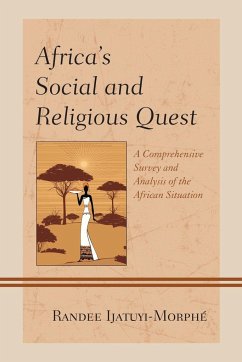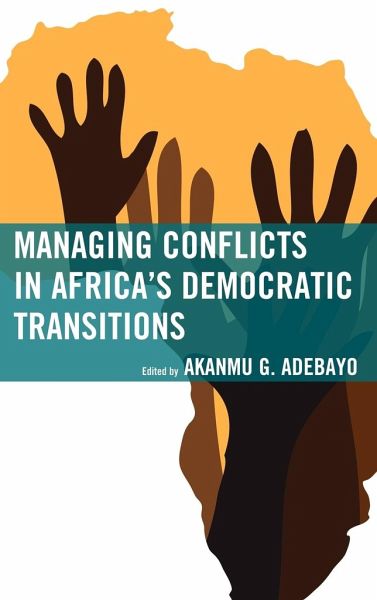
Managing Conflicts in Africa's Democratic Transitions
Versandkostenfrei!
Versandfertig in 1-2 Wochen
138,99 €
inkl. MwSt.
Weitere Ausgaben:

PAYBACK Punkte
69 °P sammeln!
The democratization process which bolstered a culture of periodic elections has also fostered election-related violent conflicts. As democratic transitions gained currency in the new millennium, orderly transitions through the ballot boxes began replacing military coups but deaths and destructions came in the wake of elections in many countries. Inspired by decades-long pro-democracy movements across Africa that culminated in the Arab Spring of 2010-2011, and motivated by the desire to find long-term solutions to election-related violent conflicts in the continent, this book explores the terra...
The democratization process which bolstered a culture of periodic elections has also fostered election-related violent conflicts. As democratic transitions gained currency in the new millennium, orderly transitions through the ballot boxes began replacing military coups but deaths and destructions came in the wake of elections in many countries. Inspired by decades-long pro-democracy movements across Africa that culminated in the Arab Spring of 2010-2011, and motivated by the desire to find long-term solutions to election-related violent conflicts in the continent, this book explores the terrain of democratization, elections, and conflict management. It raises and answers many questions, such as: What are the root causes of election-related conflicts? How free, fair, and credible are elections in many African countries? What institutional mechanisms are available for ballot and voter security and for mandate protection? What has been the role of civil society organizations in conflict prevention and management? What are the responsibilities of the international community, especially regional organizations like the Economic Community of West African States (ECOWAS) and the African Union (AU), in conflict resolution? What indigenous mechanisms for conflict management have been identified that may be proactively engaged?




